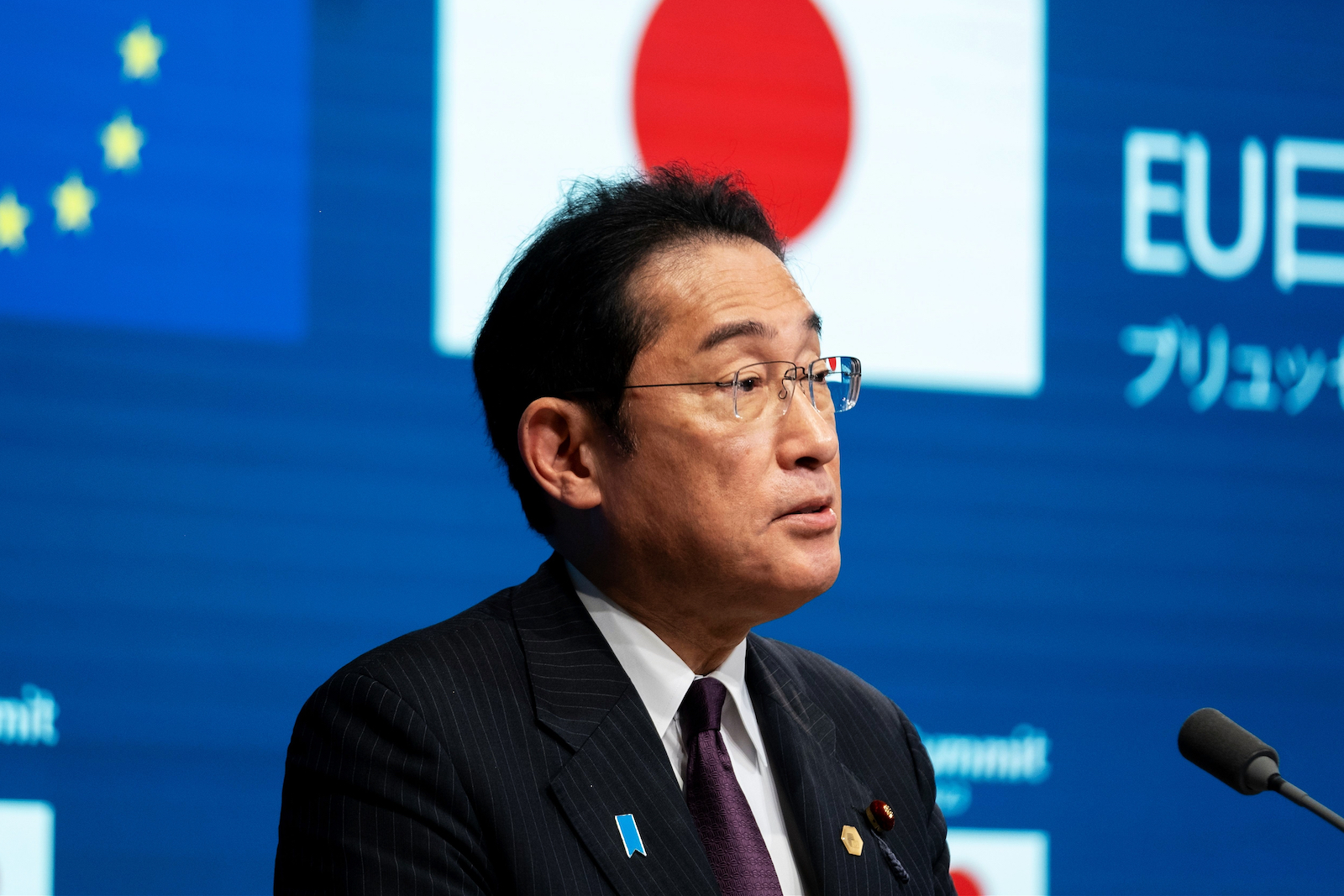
Japan is on a Perilous Path to Remilitarization
Outgoing Japanese Prime Minister Fumio Kishida‘s recent moves toward remilitarizing Japan have ignited fierce debates and unease. Critics argue that these policies may have profound security implications for the Indo-Pacific region. They contend that these actions could contravene the United Nations Charter, particularly Article 107, and represent a stark departure from Japan’s post-World War II pacifist stance.
Kishida’s policies signify a dramatic shift in Japan’s defense strategy, which has long been anchored in the pacifist principles outlined in its post-war constitution and the Three Non-Nuclear Principles. This strategic pivot, characterized by substantial increases in defense spending, an expanded military role, and more intensive joint military exercises with the United States, has raised domestic and international alarms.
The implications of Japan’s remilitarization under Kishida’s leadership are potentially far-reaching. Japan’s pacifist stance and reliance on the U.S.-Japan Security Alliance have historically contributed to relative stability in the region. However, Kishida’s push to bolster Japan’s military capabilities and revise its defense policies—particularly through joint military exercises with the United States—threatens to disrupt this delicate balance. The significant increase in Japan’s defense budget, along with plans to enhance military hardware and develop new defense strategies, is perceived by some regional actors as a destabilizing threat.
These joint Japan-U.S. military exercises, aimed at improving interoperability and readiness, are especially contentious. While intended to strengthen defense cooperation, they are viewed by some regional powers as provocative. Nations like China and North Korea may interpret these activities as direct challenges to their security and sovereignty, potentially prompting retaliatory actions. This perceived threat could escalate regional tensions and ignite a new arms race, with neighboring countries reassessing their own military capabilities and strategies in response to Japan’s enhanced defense posture.

Moreover, Japan’s expanded military role might recalibrate regional alliances and security dynamics. The increase in joint military activities with the U.S. could push neighboring countries to seek stronger security partnerships or accelerate their own military programs. This shifting landscape could lead to a more fragmented and volatile regional security environment, undermining efforts to maintain stability and cooperation in the Indo-Pacific.
Critics argue that Japan’s remilitarization directly challenges the provisions of the United Nations Charter, particularly Article 107. While the article affirms the right of self-defense in the event of an armed attack, it also underscores the importance of maintaining international peace and security, urging member states to avoid actions that could exacerbate conflicts.
Japan’s longstanding commitment to pacifism has been seen as a reflection of its adherence to these principles. Some view Kishida’s policies, which involve increased military spending, enhanced self-defense capabilities, and joint exercises with the U.S., as a departure from this commitment. The expansion of Japan’s military activities and the provocative nature of these joint exercises could be interpreted as undermining the spirit of Article 107, which seeks to balance the right of self-defense with the imperative of preserving international peace.
Kishida’s approach could also have significant implications for Japan’s standing within the UN framework. The international community might question whether Japan’s remilitarization aligns with its obligations under the UN Charter, potentially affecting its role in global diplomatic and security discussions. The perception of Japan as a militarizing power, particularly in conjunction with its joint military activities with the U.S., could strain its relationships with other UN member states and hinder its ability to contribute constructively to international peace and security efforts.
Domestically, Kishida’s remilitarization agenda has sparked considerable debate. While some Japanese support more robust defense capabilities in response to perceived threats, others worry about a possible return to militarism and the erosion of Japan’s post-war identity. The public’s historical aversion to militarization, shaped by the traumatic legacy of World War II, plays a crucial role in shaping domestic attitudes toward these policy changes.
Mitsuo Yoshida, a prominent history professor, warns against forgetting the historical context of Japan’s past militarism. He emphasizes balancing military growth with diplomatic efforts to avoid repeating past mistakes. “Those who cannot remember the past are condemned to repeat it,” Yoshida quotes philosopher George Santayana. “Japan has one path—the path of peace and prosperity. History is cyclical; if we choose militarization again, we risk facing the same dire consequences.”
Internationally, Japan’s remilitarization is met with apprehension and scrutiny. Allied nations, including the United States, may view Japan’s increased military capabilities and joint exercises as positive developments for regional security, provided they complement existing security arrangements and do not lead to regional destabilization. However, countries within the Indo-Pacific, especially those with historical grievances or territorial disputes with Japan, may regard these developments with suspicion and concern.
Prime Minister Kishida’s decision to remilitarize Japan and intensify joint military exercises with the United States presents a complex challenge for the Indo-Pacific region and the broader international community. Significant concerns are the potential for heightened regional tensions, an arms race, and questions surrounding Japan’s adherence to the UN Charter. As Japan navigates this pivotal shift in its defense policy, it must carefully balance its security interests with its historical commitments and international obligations. The global community will undoubtedly be closely scrutinizing Japan’s actions and their impact on regional stability and international peace.
